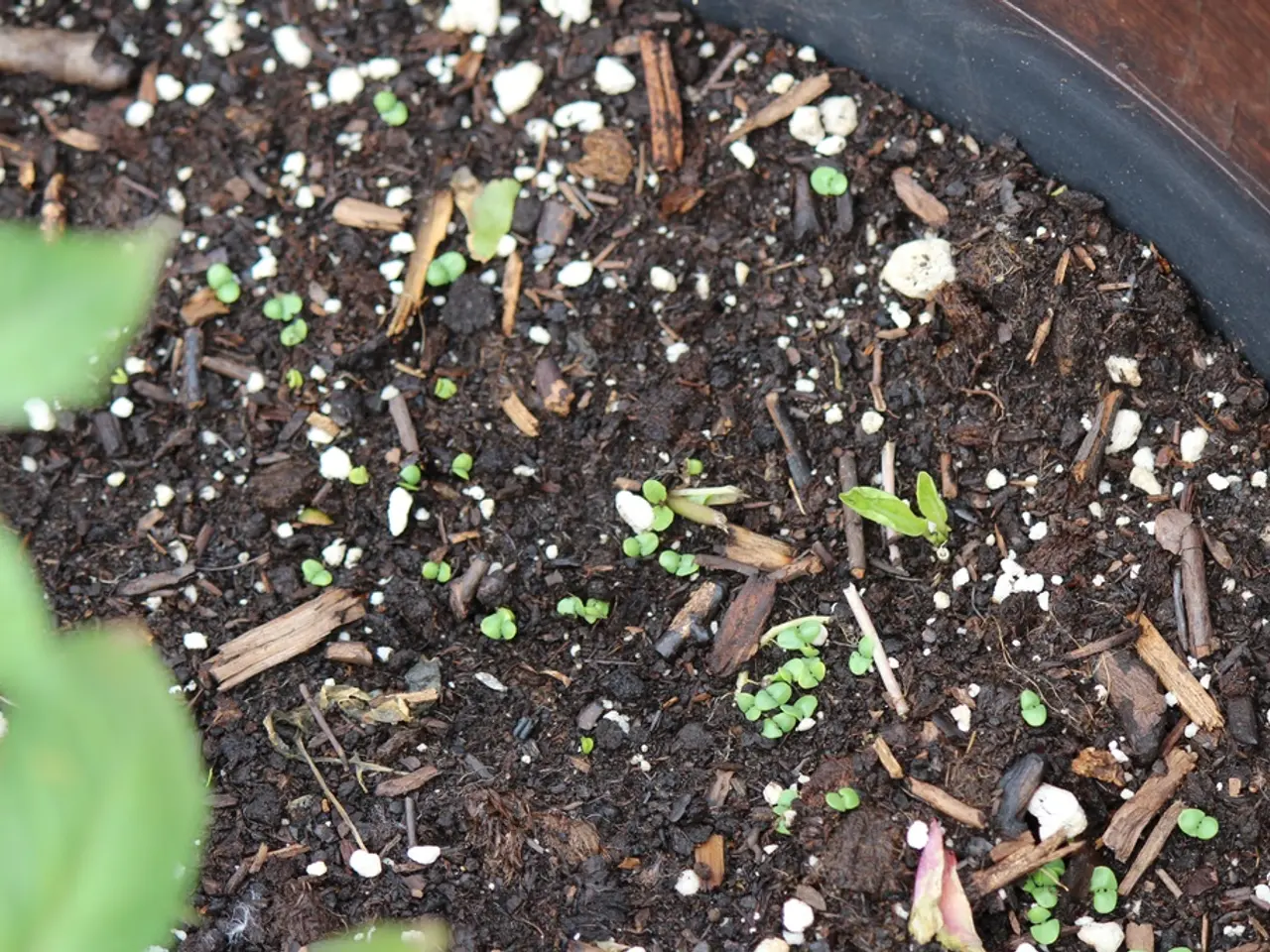Unveiling Key Minerals for Soil: Discovering the Mysteries of Plant Growth Enhancement
Plants require a variety of nutrients to grow and thrive, and while macronutrients like nitrogen, phosphorus, and potassium are well-known for their importance, micronutrients play a crucial role as well. These essential elements are present in plant tissue in minute quantities, yet they are vital for total plant nutrition.
Micronutrients, such as iron (Fe), boron (B), chlorine (Cl), manganese (Mn), zinc (Zn), copper (Cu), molybdenum (Mo), and nickel (Ni), perform various functions that are vital for plant growth and development.
Boron, for instance, is essential for sugar transport, amino acid production, cell wall formation, crop reproduction, fruiting, flowering, and improving overall crop quality. It supports root and shoot growth and is critical before the flowering stage.
Iron is crucial for chlorophyll synthesis, photosynthesis, enzyme function, energy transfer, nitrogen reduction and fixation, and lignin formation. Iron deficiency commonly causes yellowing (chlorosis) of younger leaves.
Manganese is important for chloroplast production, photosynthesis, enzyme activation, seed germination, and crop maturity. Deficiency leads to chlorosis with vein yellowing in younger leaves.
Zinc functions in enzyme systems, protein synthesis, growth regulation, and seed development. It is also required for the synthesis of chlorophyll.
Copper acts in photosynthesis, respiratory enzymes, and lignin synthesis, supporting structural integrity and metabolism.
Chlorine is primarily involved in osmotic and cation neutralization, while nickel is essential for the function of the urease enzyme, which is involved in nitrogen metabolism. Molybdenum is a cofactor to enzymes important in building amino acids and is involved in nitrogen metabolism.
These micronutrients enhance enzymatic activities, photosynthesis, cell wall strength, nutrient transport, reproduction, and overall plant metabolism, influencing growth stages from root development to flowering and fruiting. Deficiencies often cause stunted growth, leaf deformities, chlorosis, and poor yield.
Micronutrients work synergistically with macronutrients to provide a balanced nutrient uptake essential for healthy and sustainable plant growth. Proper micronutrient management is critical to prevent deficiency symptoms and ensure optimal crop productivity.
For example, magnesium deficiency can be corrected using Epsom salts (magnesium sulphate). Calcium, one of the most abundant nutrients in the soil, acts as a transporter, helping plants to utilise and distribute other nutrients.
In summary, micronutrients support the biochemical and physiological functions necessary for plant development at all stages, despite their presence in minute quantities. Proper micronutrient management is critical to prevent deficiency symptoms and ensure optimal crop productivity.
Fitness-and-exercise can be compared to the essential role of micronutrients in plants, as they both play a crucial part in growth and development, even though they are present in minute quantities. For example, fitness exercises boost energy transfer (similar to iron's role in chlorophyll synthesis and photosynthesis), while proper nutrition enhances enzyme function (much like micronutrients performing various functions vital for plant growth).
Just as health-and-wellness entails a balanced diet and regular exercise to support overall human health, plant health requires the right balance of macronutrients and micronutrients for optimal growth and productivity. Proper micronutrient management is critical to prevent deficiency symptoms and ensure growth from root development to flowering and fruiting, just as maintaining a balanced diet and exercise routine helps maintain human health and wellness.




